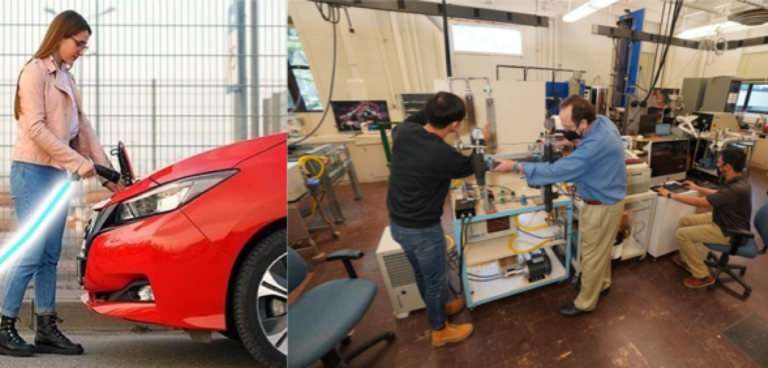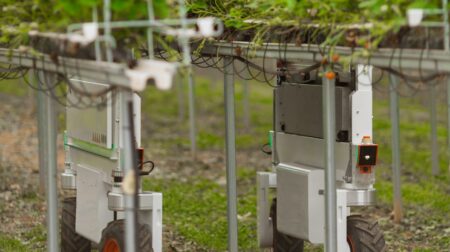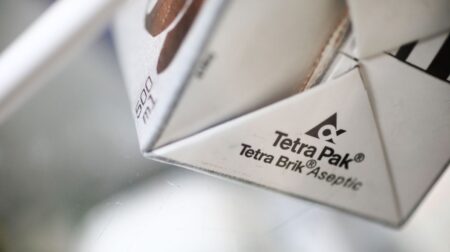According to American space agency NASA, its technology, designed to cool equipment in space, could be used to cut the charging time of electric vehicles (EVs) to five minutes or less.
The federal space agency-funded technology, developed while working in partnership with Purdue University, could be developed for future space missions and has the potential to cut charging times from hours to minutes.
The technique developed by the two research partners is referred to as “subcooled flow boiling,” and could be used to increase the amount of electrical current running through EV chargers by roughly 1,400 amps, which is almost five times the current 520-amp rate, according to NASA.
What’s more, NASA has said that standard EV chargers used by consumers tend to provide less than 150 amps.
The post from NASA announcing the tech said: “This new “subcooled flow boiling” technique results in greatly improved heat transfer effectiveness compared to other approaches and could be used to control the temperatures of future systems in space.
“Before electric cars can become widely used, certain challenges must be overcome…the time required to charge a vehicle must be reduced.
“Reducing the charging time for electric vehicles to five minutes (an industry goal) will require charging systems to provide current at 1,400 amperes.
“Purdue’s charging cable can provide 2,400 amperes, which is far beyond the 1,400 amperes required to reduce time required to charge an electric car to five minutes.”
The research team has likewise developed the Flow Boiling and Condensation Experiment (FBCE) to enable two-phase fluid flow and heat transfer experiments which are possible within a space station environment.
The pair hope to further develop this technology before it is viable for use in electric vehicles. The research partnership between the two has been funded by Purdue and car manufacturer Ford, and dates back to 2017.








